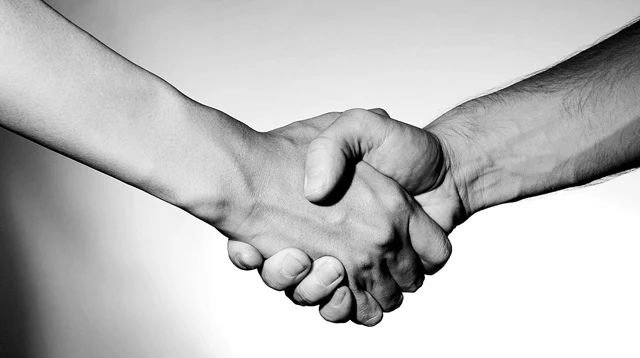
When you’re interviewing for a job, your body language is almost as
important as the answers you give to the questions. Employers will
evaluate what you do as well as what you say, and you can use your
nonverbal communication skills to make the best impression.
The Importance of Nonverbal Communications
Most candidates carefully prepare what they will say during interviews
and networking meetings. Less attention is typically paid to how
messages are communicated. Your interviewing and networking success
will be largely determined by how the people you meet respond to what
you are saying.
Communicating at Job Interviews
Your
nonverbal communications can either support the tone of your
conversation or leave the interviewer wondering whether you’re all talk
and no substance. Displaying nonverbal behaviors that are a match for
your messages can help you to convince employers that you are genuinely
interested in the job and suited for the work.
In general, what’s most important is to be positive and engaging. If
you feel confident about your ability to do the job and know you’ll be
an asset to the employer, you can show that by your actions as well as
your words.
Communicating at Work
In
addition to making a hiring decision, employers will also be evaluating
your nonverbal skills to determine whether you will be able to relate
effectively to clients, co-workers and business associates.
In
many occupations, the ability to establish credibility and trust is a
significant success factor. Positive nonverbal behavior will enable you
to demonstrate your sincerity and engaging personality.
Nonverbal Communication Skills Examples
Want to brush up your skills? Review this list of nonverbal skills and work on any areas where you think you could improve.
A - L
- Avoiding a slouching posture
- Avoiding smiling or laughter when messages are serious
- Displaying some animation with hands and facial expressions to project a dynamic presence
- Don’t bring your phone, a drink or anything else to an interview or meeting that could distract you
- Don’t interrupt your interviewer
- Eliminating fidgeting and shaking of limbs
- Establishing frequent but not continuous or piercing eye contact with interviewers
- Focusing on the on conversation
- Introducing yourself with a smile and a firm handshake
- Keeping hands away from the face and hair
- Leaning slightly forward to indicate interest
- Listening carefully
- Maintaining open arms, folded arms can convey defensiveness
- Modulating vocal tone to express excitement and punctuate key points
N - Z
- Nodding to demonstrate understanding
- Observing the reaction of others to your statements
- Paying attention to the conversation
- Reading the nonverbal signals of others; providing clarification if they look confused, wrapping up if they have heard enough
- Refraining from forced laughter in response to humor
- Refraining from looking at the clock, your phone or displaying any other signs of disinterest
- Respecting the amount of personal space preferred by your communication partners
- Rotating eye contact to various speakers in group interviewing or networking situations
- Shaking hands firmly without excessive force
- Showing that you’re interested in what the interviewer is telling you
- Smiling to indicate that you are amused or pleased with a communication
- Staying calm even when you’re nervous
- Steering clear of monotone delivery
- Waiting until the person is done talking to respond
Practice Makes Interview Perfect
Practicing
your delivery of messages through role playing with counselors and
friends can help you to hone your non-verbal communication skills. Try
recording your role playing or practice sessions so you can analyze some
of the nuances of your style. Here are tips for practice interviewing.
Spending
some time practicing will ensure your skills are up to par. You’ll also
feel more comfortable when you’re interviewing or networking if you’ve
spent time getting ready. The less nervous you are, the better you’ll be
able to communicate well – both verbally and nonverbally.





















COMMENTS